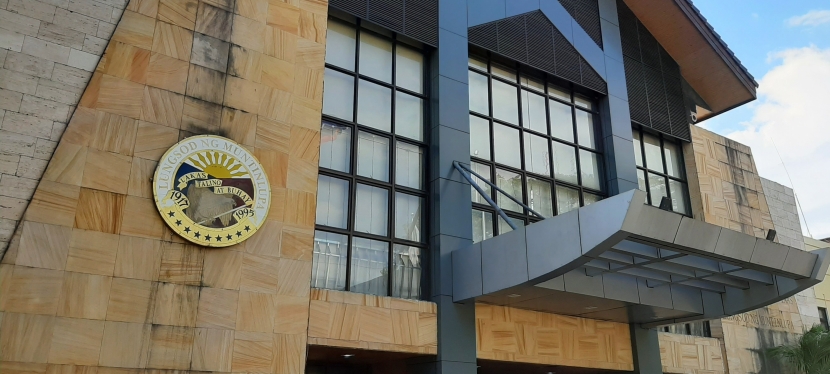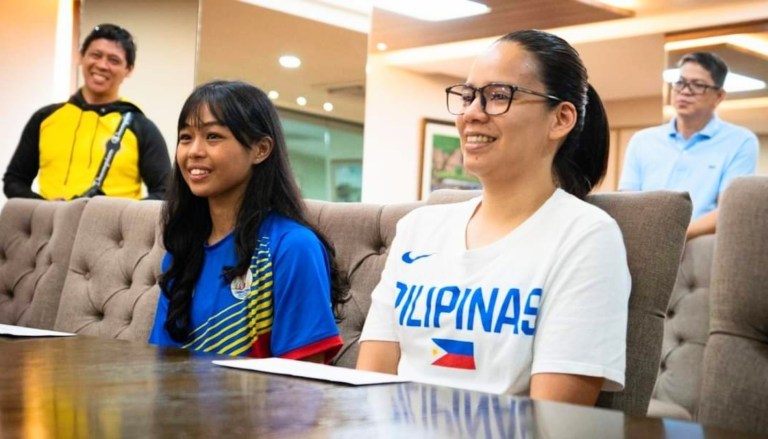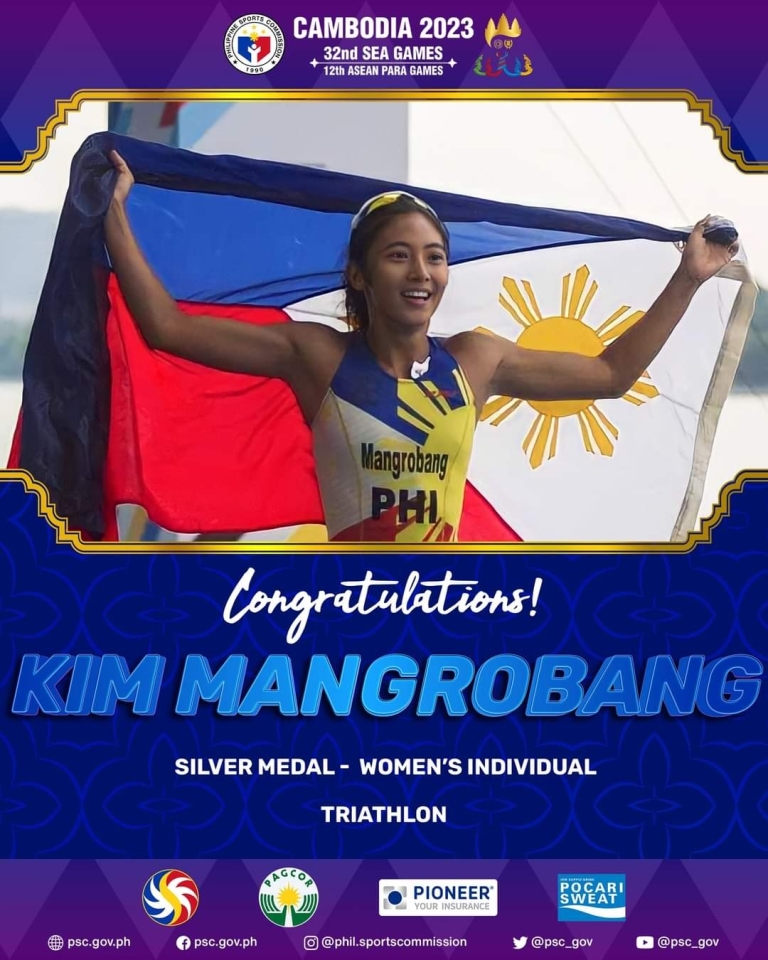Welcome back my readers and sports fans! As the 32nd Southeast Asian Games is about the end, there has been a lot of discussions online about SEA Games host Cambodia and the many foreigners it naturalized who helped them win gold medals in specific sports events. The controversy is only growing and there is concern that what Cambodia has done could potentially ruin Southeast Asian sports as we know it.
To put things in perspective, Cambodia’s naturalized French athlete Margot Garabedian won the gold medals in the Women’s Individual Aquathlon as well as in the Women’s Individual Triathlon. In the Men’s 5-on-5 basketball, Cambodia defeated Gilas Pilipinas 79-68 as they were reinforced by six American players who were naturalized.
Meanwhile, a New Straits Times published an article focused on Cambodia’s mockery of the sport of cricket as their own team has a mix of Indian and Pakistani players. To be more precise, there were 13 foreign-born cricket players on the Cambodian team. As such, the Malaysian Cricket Association (MCA) hopes that the SEA Games Federation and the Olympic Council of Malaysia will conduct a review of the tournament as we as the eligibility of all players representing different nations in the 32nd SEA Games.
In relation to these developments, there were two other articles that tackled the controversy of Cambodia’s naturalized reinforcements from overseas. One from veteran sports analyst Quinito Henson and the other a New Straits Times piece.
To begin with, posted below is an excerpt from Quinito Henson’s analysis published by the Philippine Star. Some parts in boldface…
A rule to allow any player, with or without affinity, to represent a country on the basis of a passport has opened the floodgates for mercenaries to desecrate the spirit of sportsmanship at the ongoing SEA Games in Cambodia. The norm of enlisting only one naturalized player for a national basketball team is now out the window. The host country has spared no cost in trying to collect gold medals like they were for sale in the open market and foreign athletes who probably had never visited Cambodia before the SEA Games are shamelessly wearing the national colors for money.
Last January, POC president Mayor Bambol Tolentino disclosed Cambodia’s devious plan to recruit foreign athletes for the SEA Games. In the Philippines, it’s a process to naturalize anyone because the law requires approval from Congress and Senate. But in other countries, it’s like issuing a driver’s license without a test and the wait could be overnight.
The downside of loading up on naturalized players is they don’t compete for national pride. Take, for instance, Cambodia’s 3×3 women’s squad of four American tourists – 5-7 Brittanny Dinkins of University of Southern Mississippi (played in seven countries before landing in Phnom Penh), 6-1 Mariah Cooks of Washington State University, 5-8 Kim Hanlon of Stony Brook University and 5-9 Meighan Simmons of University of Tennessee. Cooks and Hanlon are Women’s Premier Basketball Association (WPBA) veterans while Simmons was New York’s third-round pick in the 2014 WNBA draft. After the imports lost to the Philippines, 21-20 in the semis, they showed no heart in bowing to Indonesia, 21-15 in the playoff for third. The gold medal was lost and the bonus that would’ve come with it so who cared for third place? They didn’t play for Cambodia, they played for themselves and a paycheck.
Posted below is the 2nd excerpt from Henson’s article…
Cambodian Joshua Bo Noung, who played high school basketball in the US, couldn’t land a spot on the national team because of the naturalized overload. “I am a little embarrassed for Cambodians,” he said. “Because this is not our way to resort to, not giving our own people a shot at competing. They resort to this for immediate success but they have to understand the pride in representing the people of Cambodia all around the world. Losing is part of learning to become better. Winning without integrity isn’t winning”.
In his analysis, Henson cut through the naturalization controversy and hit the key spots precisely. This raises questions about how Cambodia is implementing its very own sports development program and how far will they go to attract foreign athletes and naturalize them to boost their chances of winning in international sports events. After the SEA Games, will Cambodia have their naturalized reinforcements play for them in the Asian Games, the Olympics, and in the respective championship events in the sports of triathlon, basketball, cricket, and other sports?
More on those naturalized athletes, are they truly dedicated to Cambodia as their definitive nation with the long-term future in mind? How do they look at the homegrown Cambodian athletes who could not perform as great as them?
The next article to pay attention is from the New Straits Times which focuses more on ASEAN spirit affected by Cambodia and its naturalized athletes. Posted below is an excerpt from the article with some parts in boldface…
Hosts Cambodia’s conspicuous usage of foreign athletes at the ongoing Sea Games is not good for the Asean spirit.
This was stated by sports analyst Datuk Dr Pekan Ramli who pointed out that the objective of Asean is to strengthen unity among its 10 countries.
“Cambodia hiring imported athletes to win as many gold medals as possible does not strengthen the relationships among Asean countries,” he said today.
“Cambodia is too ambitious to win gold, they will do anything to finish among the top three in the medal tally.“
With five more days of the Sea Games remaining, Cambodia have bagged a whopping 56 gold medals and are second in the medal table to Vietnam who have 58 gold.
“Cambodia have set a precedent in the Sea Games that it’s okay to hire foreign athletes by giving them PR or citizenship for a short time to win medals,” said Pekan.
“In future other countries which are not strong in sports like Myanmar, Laos and Timor Leste will do the same when they host the Sea Games.
“This does not show true sportsmanship in sports.”
Cambodia is hosting the ongoing Sea Games for the first time, and more than half of its contingent are imports from countries like the United States, India, Pakistan, China and other nations.
Cambodia have raised eyebrows by fielding foreign athletes in cricket, hockey, basketball, volleyball, badminton and other sports.
Just imagine this. Cambodia’s all conquering 3×3 women’s squad consist of four “American tourists” — Brittany Dinkins, Kimberly Hanlon, Mariah Cooks and Meighan Simmons.
Pekan said there are no proper rules and guidelines in the Sea Games Federation that prohibit a country fielding foreign athletes.
“Basically the rules allow countries to take the opportunity to hire foreigners.
“Cambodia has spent a lot of money to host the Sea Games for the first time, and of course which host country does not want to win as many gold medals as possible?
“The government of Cambodia wants to please their people by showing that they can host the Sea Games and win a lot of gold. They also want to justify that they have spent the money wisely for the Games with good returns.
“And Cambodia is not the first country in the region that hire foreign athletes to win medals.
“Other countries have done it before. . Singapore have China-born naturalised table tennis players. A few athletes have dual citizenship, American and Filipino. Yet they are allowed to compete in the Sea Games.
“Look at our national football team, most of the players are naturalised players from other countries.
“We (Malaysia) have also given PR to foreign athletes to win medals in the Sea Games. Yuan Yufang is a China-born athlete who has won many gold in long distance and walk events in the Sea Games.
Let me end this piece by asking you readers: Do you think Cambodia and its naturalized athletes from overseas will ruin sports in the Southeast Asian region as we know it? When it comes to the aspect of granting citizenship to foreigners, do you think your country has sufficient laws that justify declaring foreign applicants as new citizens? How long do you think foreign applicants (for citizenship in your country) need to be living in the country before they qualify for citizenship? Does your country have a good sports development program that focuses on homegrown athletes?
You may answer in the comments below. If you prefer to answer privately, you may do so by sending me a direct message online.
+++++
Thank you for reading. If you find this article engaging, please click the like button below and also please consider sharing this article to others. If you are looking for a copywriter to create content for your special project or business, check out my services and my portfolio. If you want to support my website, please consider making a donation. Feel free to contact me with a private message. Also please feel free to visit my Facebook page Author Carlo Carrasco and follow me on Twitter at @HavenorFantasy as well as on Tumblr at https://carlocarrasco.tumblr.com/ and on Instagram at https://www.instagram.com/authorcarlocarrasco/.

















